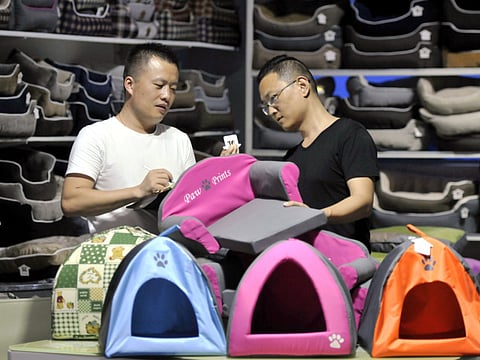China unleashed, Europe paralysed
For Berlin and Brussels, the relationship with Beijing is a fateful balancing act — as much cooperation as possible, as much distance as necessary

Angela Merkel has been Chancellor of Germany for nearly 13 years, and she travels to China almost once a year. She has visited vegetable markets and old shrines, spoken to mayors and argued with party officials. She’s seen German factories and examined Chinese companies. She’s taken cooking classes and had driverless cars shown to her. No other country has aroused Merkel’s curiosity as much as China. This may be due to her belief that curiosity is a prerequisite for good governance. But there is a second, more important reason for Merkel’s desire to travel eastwards: Pretty much everything that will decide Germany’s future is tied to China.
China wants to become an economic world power and is using its rapid digitalisation to do so. Beijing exemplifies authoritarianism so aggressively and consistently that it has become a counter-offer for those who doubt the efficiency of western democracies. China has become a major economic and political challenge to Germany and Europe. For decades, the Old Continent could praise itself as a haven of democracy, openness to the world and economic success. China is about to establish a very powerful counter-model.
Relations with Beijing these days are therefore no longer a matter of having a few good or less-good talks, the sort that took place on June 9 at the German-Chinese government consultations. Nor are they about obtaining this or that billion-dollar order. What’s at stake, rather, is whether Europe remains at eye level with China, or becomes a beggar.
That last sentence sounds anxious and it’s meant to be. Shifts over the last decade could hardly paint a different picture. China seems to be unleashed. Europe, by contrast, is more and more paralysed. China’s biggest concern is that it might no longer be able to offer its rapidly growing middle class enough novelty. Europe, meanwhile, is struggling with the fact that an underclass, cut off from the fruits of development, is emerging in many European Union states. For anyone with an eye for modernity and dynamism, China is the future. The feeling is that of seeing a Formula One racing car rushing past a beautiful, but old Fiat 500.
The uncertainty is all the more pressing when you’ve truly experienced China’s pace for a few days and then return to the German debates about the welfare state, pension levels and the minimum wage. That doesn’t mean these debates aren’t important. And it doesn’t mean we should replace the tenacious struggle for solutions with an authoritarianism a la China. But the contrast shows the different speeds at which Europe and China are travelling. And it reveals how irresponsible are all those who, for national-minded reasons, provoke divisions and make compromises difficult in Europe. It’s like they still haven’t realised what’s going on around the world.
For Berlin and Brussels, the relationship with Beijing is a fateful balancing act. As much cooperation as possible, as much distance as necessary. This may sound banal, but it’s crucial as a compass in dealing with China. The defence of human rights is no trifle. They make Europe. Giving them up means giving up on who the Europeans are.
— Worldcrunch, 2018, in partnership with Suddeutsche Zeitung/New York Times News Service
Stefan Braun is Berlin correspondent of Suddeutsche Zeitung. He writes on German foreign policy, the Greens and the Federal Ministry of the Interior.


